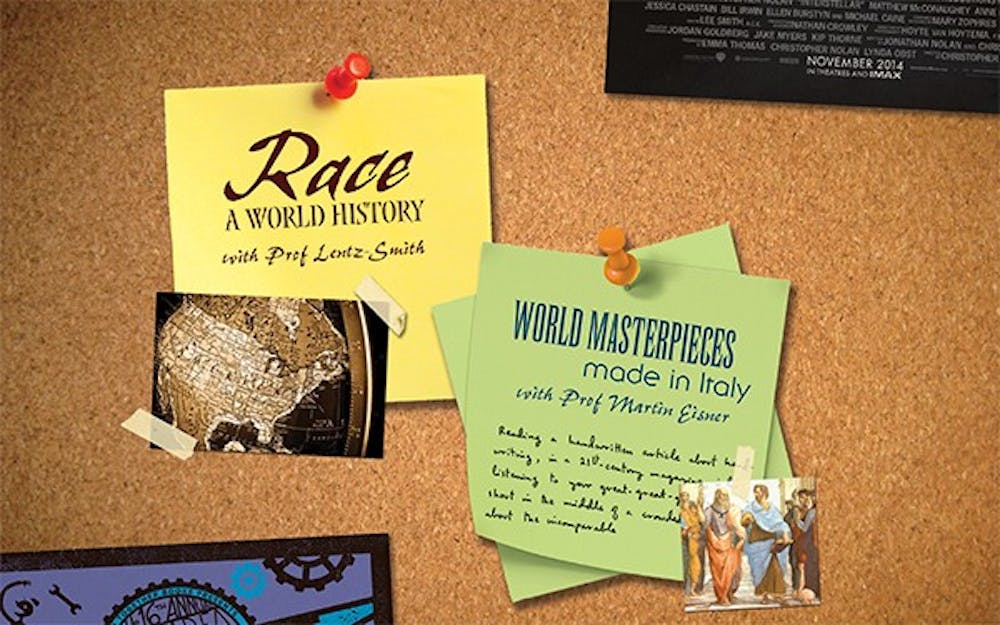Duke introduced a selection of new "signature courses" this Fall that hit on a number of University buzzwords—including interdisciplinary studies, real-world applications and classroom innovation.
Trinity College of Arts and Sciences launched the series with two courses this semester, both designed to help students develop skills and vocabulary to conduct and communicate deeper analyses of real-world problems. The school hopes to expand the program with more courses in the future
“These are courses that both introduce students to a discipline but also reach beyond the discipline to ask questions and explore topics of broad significance and broad appeal,” said Adriane Lentz-Smith, director of undergraduate studies for the history department, who is teaching one of the courses.
Trinity Dean Laurie Patton noted that the course series got its name from the fact that the classes draw on a number of Duke "signatures"—strong professors, unique teaching techniques and collaboration around the world's "big questions."
"We feel we have a great advantage at Duke in already having so many unique pedagogical approaches," Patton wrote in an email Wednesday. "So let's take the next step and roll these great qualities into one common memorable intellectual experience, called a 'Signature Course.'"
The two new courses offered this semester are Race: A World History and World Masterpieces Made in Italy, from the history and romance studies departments, respectively. Race: A World History is taught by Lentz-Smith, and its main focus is to explore the social construct of race and how it has operated in different regions throughout history.
“People have a really bad vocabulary about talking about race as if it were a variable extracted from other things under discussion,” she said. “[My aim is to] offer better tools to talk about and think through race.”
World Masterpieces Made in Italy is taught by Martin Eisner, associate professor of Italian studies. The course focuses on getting students to interact with the “Great Books” and other art forms produced by thinkers including Dante, Plato, Socrates and Aristotle.
Eisner highlighted the variety of ways he intends for students to increase their exposure to older art—including field trips to the Anonymous 4 medieval acapella show and a trip to the North Carolina Museum of Art.
“I want to add to the hundreds of years of conversation about these cultural products, [seeing as] those texts are open to interpretation,” Eisner said.
He added that he hopes his class will allow students to read pieces they have heard of but would not otherwise read.
Sophomore Alex Song in enrolled in Lentz-Smith's class and said he has found it enjoyable thus far, noting that he found about the class through an e-mail blast he received at the end of last year.
"I really like the unconventional approach to history by looking at individual case studies and reading primary sources," Song said.
Patton noted that the classes are somewhat similar to the University Courses, which are centered on social issues and bring together members from across the Duke community by being open to students from every school. The Signature Courses, however, are designed to focus on more specific topics and are taught more frequently—with multiple Signature Courses offered at once, compared to the University Course model, which offers one class each Spring.
"We all have had experiences of great courses," Patton wrote. "They usually reflect the 'ideal' education—what we thought we would be doing at college. So we felt it would be a great idea to combine the best of what Duke has to offer in a single course: a common intellectual experience that many students are energized by, taught by our best and most inspiring teachers, a focus on a 'big question' and clear pedagogical innovation."
Get The Chronicle straight to your inbox
Signup for our weekly newsletter. Cancel at any time.

